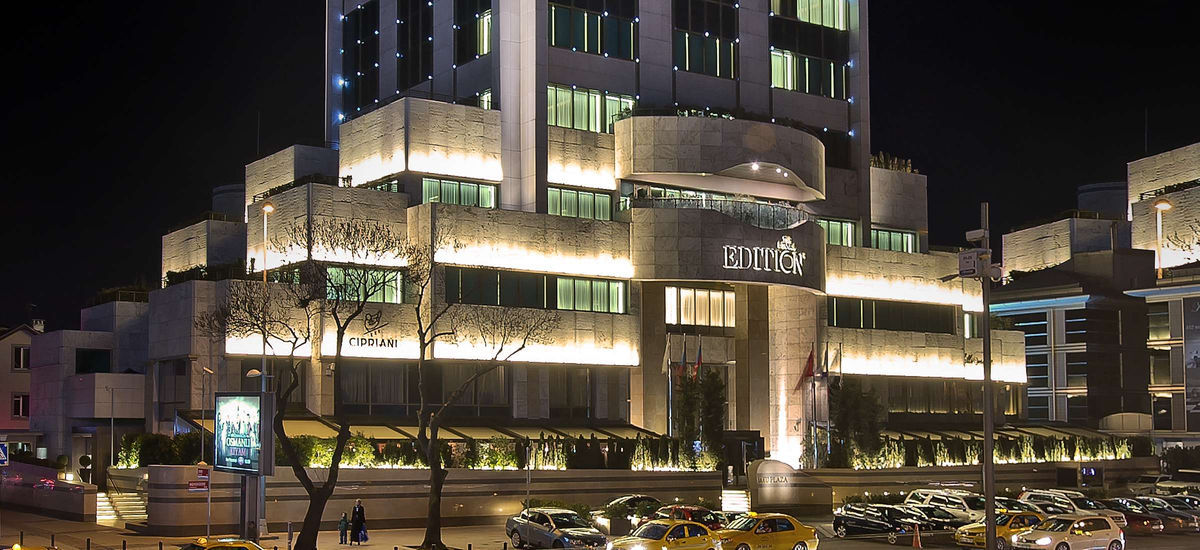
Hotel Sales to Chinese Investor 9/19

EDITION
The ‘A’ List of Great Boutique Hotels
Created through a groundbreaking partnership between boutique hotel impresario Ian Schrager and the global hospitality powerhouse Marriott International, the EDITION brand is fast becoming the industry’s first truly global luxury lifestyle hotel brand. EDITION combines the personal, individualized and unique hotel experience of a world-class boutique hotel with the reach and scale of a global hospitality company to deliver an experience that is polished and personable, charismatic and comfortable, and sophisticated while remaining accessible.
EDITION’s groundbreaking design, vibrant public spaces and sophisticated programming give each property a sustainable competitive edge over the competition in every market we enter. With each hotel distinctive in its own right, EDITION is intended to push the boundaries, break new ground and take the hospitality industry into bold, uncharted areas — with timeless design, uncompromising quality, true originality and impeccable modern service, EDITION Hotels will redefine the boutique hotel category.
The marriage of Schrager and Marriott
THEY make one of the hotel industry’s odder couples, but Ian Schrager and Marriott have been working together—quite happily it seems—for a few years now.
Mr Schrager is known for his involvement in a variety of zeitgeisty nightlife and hotel businesses. He co-founded Studio 54 in New York in the 1970s with his friend Steve Rubell, and then changed tack to create arguably the world’s first boutique hotel, Morgans, in the same city. More followed. Marriott, in contrast, is an 86-year-old chain with over 600,000 hotel rooms and just three CEOs in its history. It’s not renowned for being hip.
So when seeking to develop a brand to take on the likes of Starwood’s W hotels, Marriott must have hoped that Mr Schrager would bring a necessary supply of stardust. The collaboration on Marriott’s EDITION hotels is certainly interesting, though with just one hotel up and running, it is too early to judge quite what impact the brand will have.
The Istanbul EDITION opened in 2011, and the London outpost is due to open this autumn. These hotels need to perform rather better than the very first EDITION, in Hawaii, which has already been and gone. Less than a year after its opening, the owners decided in August 2011 to install a different management company from Marriott. The case ended up in the courts and the hotel is now the Modern Honolulu. Better news can be found elsewhere in America, though. Next year an EDITION is scheduled to open in Miami Beach, which will include 26 apartments (glamorous website here), among them the most expensive ever to be sold in South Florida. And other hotels have been pencilled in for New York and Los Angeles.
But back to Mr Schrager. When I spoke to him recently he admitted that with his previous hotel projects the scale was not the exciting factor. In his dealings with Marriott, that has changed. “With Marriott, the scale of it is what interested me.”
It’s a collaboration in which he seems himself as the nimbler partner. “I’m a 110mph speedboat, I can turn on a dime,” he suggests. “And they’re an aircraft carrier.”
Mr Schrager thinks modern guests want rather more from their hotel stay than the efficiencies offered by large chains—and it’s the 110mph speedboat that can help them get that. “I think the American hotel business grew up and was predicated on a mass-market model,” he says. “[But] that doesn’t cut it any more. People want an elevated experience, not just the best location, the best reservation system.”
Hoteliers who doubt the importance of differentiating themselves should look outside the industry to the practices of other successful companies, he says. “In other industries, like Apple, like Nike, like Zara, they realised that the only thing that matters is product distinction. All the other things—efficiencies—are important; but what’s [really] important is product distinction.”
“My industry is realising that. It’s an emphasis on creating a unique experience. It’s an emphasis on the product, and I think the public benefits.”
Mr Schrager has a particular interest in what is almost a throwback notion of the role of the hotel: as a business that sits at the heart of the community. “What we’re doing now, and started doing 20 years ago—that the rest of the industry abandoned—is the way the hotels were done 100 years ago,” he says. “The hotel usually was a social hub of the city they were located in. You went and had lunch there, you had your social affairs there. Then the real estate guys got a hold of it, and they didn’t know how to make money with food and beverages and the public space, so they cut it out.”
For Mr Schrager, the hotel should not be a place that guests are obliged to leave in order to have a good time. “When I go to a hotel I’d like to go to the best restaurant in town, downstairs,” he says. “And I want to go to a hotel and a restaurant that the people in the know in that city go to. There was nothing more sleepy than a hotel restaurant or bar. I woke everyone up again and changed it.”
He has no doubts about the size of the market for the sort of hotel he is developing with Marriott. “Everybody used to think that only people who wore black and lived in Soho came to my hotels,” he says. “They didn’t get how big the market was.” He even puts this kind of collaboration forward as the future of the hotel industry. It’s a future to excite most business travellers, though it would give the holders of the purse-strings a worrying night or two.



